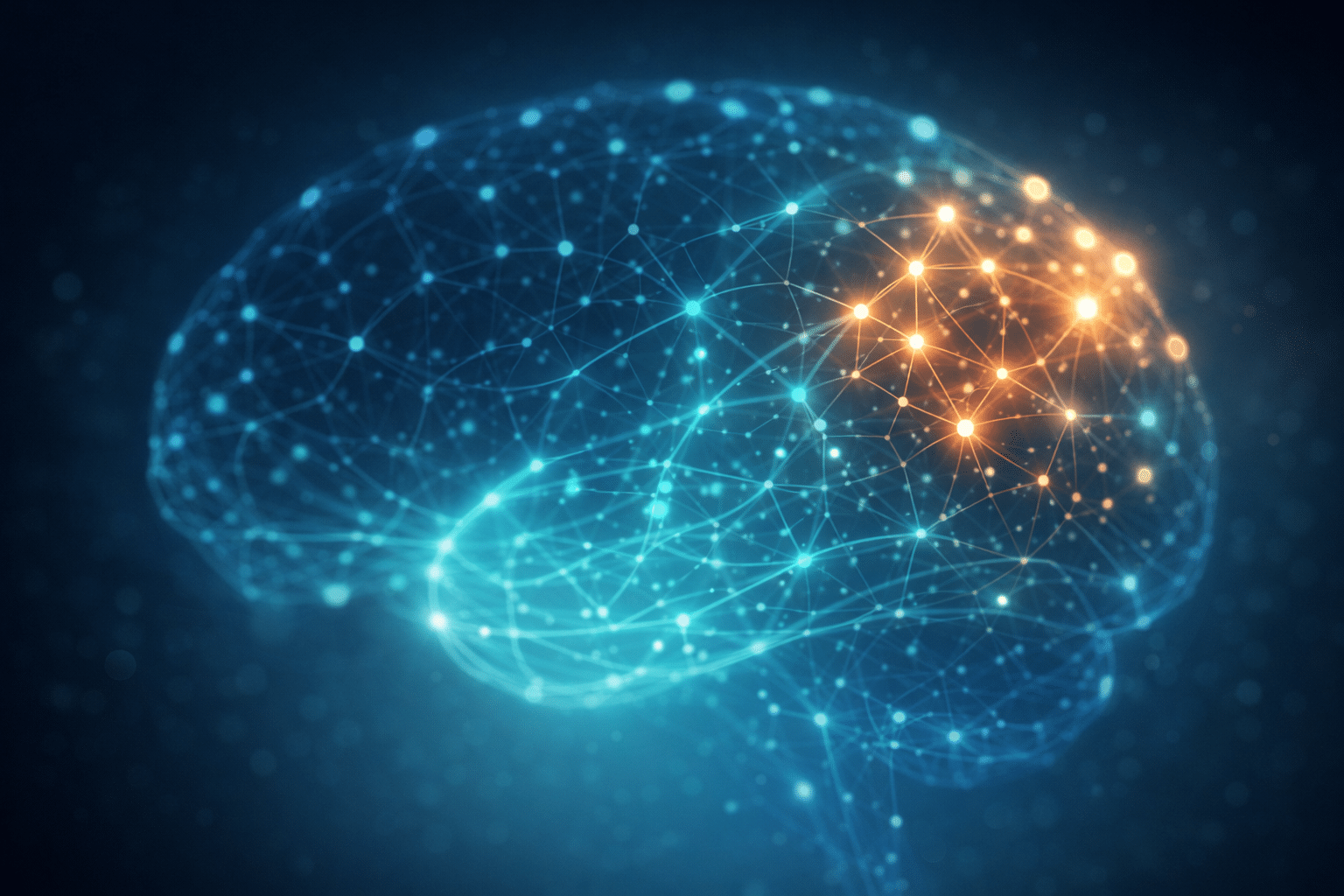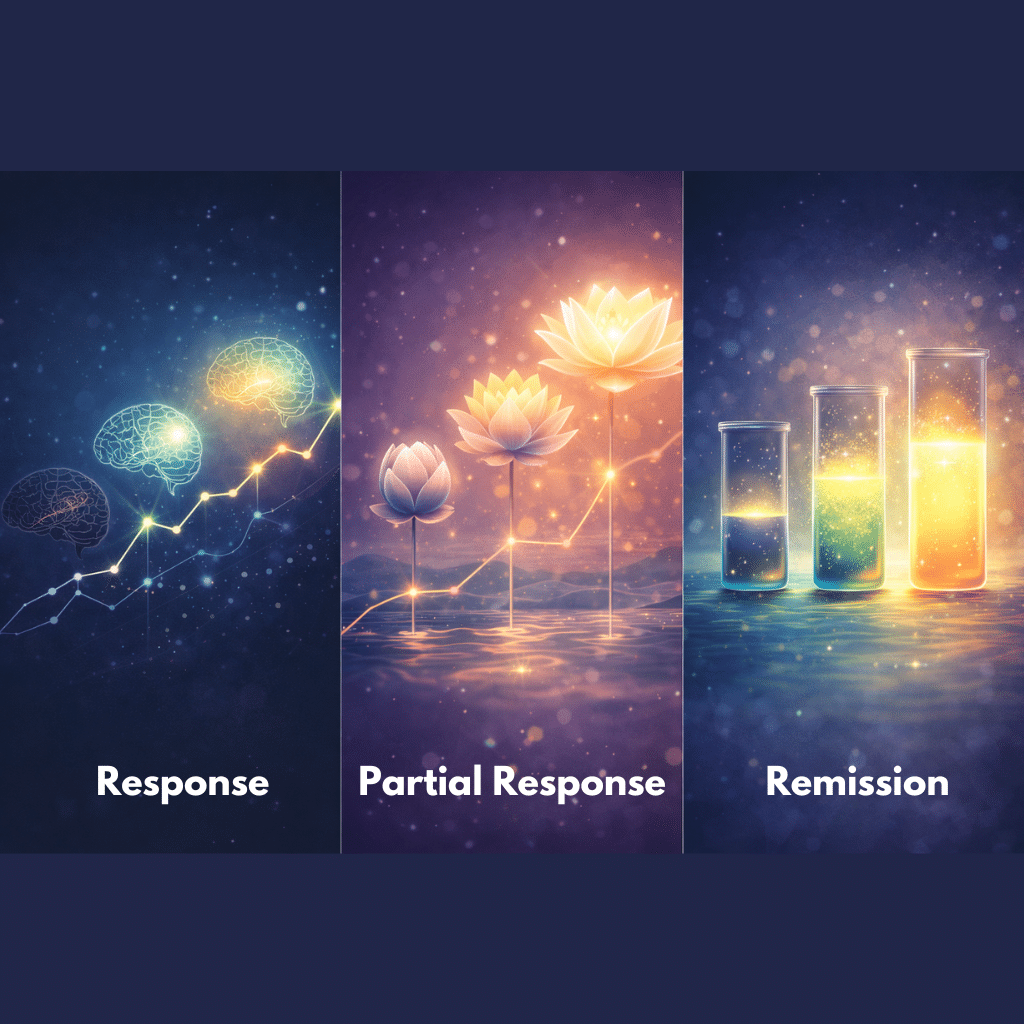It starts small sometimes. Maybe a sudden flare-up or a diagnosis you didn’t expect. Either way, there’s a moment when it all shifts. What used to be physical, something you could point to, suddenly takes up space in your mind.
That connection between body and mind is real and constant. They talk to each other all day long, sometimes in ways we don’t fully notice. Until we do.
In this post, we’re exploring how chronic disease and mental health influence each other. We will look at why the way your body feels shapes how your brain works, and how real healing starts when both get treated together.
What Is a Chronic Disease?
The chronic disease definition, according to the CDC, refers to any long-term condition that lasts a year or more and either requires ongoing medical care or limits daily life.
These are the conditions that don’t come and go. They linger and become part of your daily routine.
Some of the most common chronic disease examples include:
- Diabetes
- Heart disease
- Thyroid disorders
- Hypertension
- Autoimmune diseases like lupus or rheumatoid arthritis
- Long-term pain conditions (think fibromyalgia or back pain)
These aren’t rare. Millions live with them. Still, the emotional weight they carry often goes unseen. Living with something 24/7 changes how you think, feel, sleep, and function. That’s what makes chronic disease management so much more than checking vitals or refilling prescriptions.
How Your Body Talks to Your Brain
When the body is under stress or fighting illness, the brain picks up on it and responds.
The Inflammation Link
Inflammation doesn’t just stay in the body. It travels. Research shows people with depression often have higher levels of inflammatory proteins like IL-6 and TNF-alpha. These chemicals can affect how your brain processes mood, motivation, and even pleasure.
Now think about chronic conditions like arthritis, diabetes, or heart disease. All of them involve long-term inflammation. That means your body could be triggering emotional changes before you even realize it.
The Stress Response
Chronic illness drains energy and keeps your body on high alert. Internally, it’s like you’re stuck in “fight or flight.” The brain keeps signaling stress, pushing out hormones like cortisol.
After a while, this takes a toll. The chemicals that help regulate mood, such as serotonin and dopamine, start running low. You feel it as irritability or exhaustion. That sense of being on edge for no clear reason.
Hormonal Havoc
Some conditions take a more direct route. Thyroid disorders, for example, can change how you feel emotionally. The American Thyroid Association reports that even mild imbalances in thyroid hormones can increase the risk of depression. And because thyroid issues and depression share symptoms, such as fatigue, mood swings, and brain fog, it’s easy to miss what’s really going on.
The Mental Load of Being Sick
Beyond biology, there’s the day-to-day experience of living with illness. That, too, changes how people think and feel.
Grief and Loss
No one talks about this enough, but grief is a big part of chronic illness. Grieving who you were. What you used to be able to do. What felt normal before everything shifted. That kind of loss hits deep, even if you still look “fine” to everyone else.
Constant Vigilance
Chronic disease management takes work. Every day might mean checking blood sugar, monitoring symptoms, planning meals, and adjusting medication. It’s a job you didn’t apply for, and one you can’t clock out of.
The American Diabetes Association notes that many people with diabetes report moderate to severe depression, and this nonstop vigilance is part of why.
Isolation and Loneliness
Pain and fatigue don’t just affect the body. They affect plans. Social outings get skipped, and conversations feel harder.
According to the CDC, 24 percent of U.S. adults report chronic pain, and about 8.5 percent say it severely limits their ability to function. When daily life shrinks, so does connection. And that’s when loneliness creeps in.
When Mental Health Worsens Physical Health
The connection goes both ways. Chronic illness can trigger depression, yes, but poor mental health can just as easily make physical conditions worse.
When someone feels low, tired, or mentally drained, basic routines slip. Medications get skipped. Exercise stops. Small tasks feel overwhelming. Anxiety brings on its own body backlash: tense muscles, sleepless nights, or fatigue.
These symptoms stack up and take a toll. According to the American Heart Association, young adults with high stress or depression have a higher risk of developing heart problems. It’s one more sign that mental health isn’t separate from physical health. It’s part of it. Always.
Breaking the Cycle With Integrated Care
Treating the mind without the body, or vice versa, leaves too much out. These systems overlap constantly. The good news is that integrated care works.
The U.S. Preventive Services Task Force now recommends depression screening for all adults. However, it’s not enough on its own. True healing occurs when doctors, therapists, and psychiatrists work with each other to build insight while creating a treatment plan that takes everything into account.
Studies from AHRQ and other national research bodies back this up. When care teams are integrated, patients with both chronic illness and depression show better outcomes, not just mentally, but physically, too.
How Zeam Bridges the Gap for Sacramento Patients
At Zeam Health & Wellness, we don’t treat the mind and body separately. We know they speak to each other. Therefore, our care teams do, too.
Our psychiatry services in Sacramento work alongside primary care in Folsom and Roseville. Whether you’re managing diabetes, thyroid issues, or long-term pain, we build a care plan that considers how it’s all connected.
We also offer therapy near you, whether you’re in Sacramento, Folsom, or Roseville. That includes in-person and virtual sessions with professionals who understand the emotional toll of chronic illness, such as grief, burnout, and isolation.
And when traditional care isn’t enough, we bring in tools like TMS or ketamine-assisted therapy. Not for everyone, but when needed, they offer new paths forward, especially when other options haven’t worked.
If you’re ready to stop managing your health alone, we’re here for you. Our integrated model combines medical care, psychiatry, and therapy to create something that feels complete.
Contact us today to schedule your first visit.
Key Takeaways
- Chronic conditions affect both body and mind. The CDC defines chronic disease as any long-term condition requiring ongoing care; millions in the U.S. live with them daily.
- Inflammation links physical and emotional health. Elevated inflammatory proteins like IL-6 and TNF-alpha are common in people with both depression and chronic illness.
- Stress and hormones shape mood. Chronic stress and thyroid imbalances can disrupt serotonin, dopamine, and energy regulation, leading to fatigue or mood swings.
- The emotional weight of illness is real. Constant vigilance, isolation, and grief over lost normalcy often lead to anxiety or depression.
- Mental health impacts physical outcomes. Depression and chronic stress can worsen conditions like diabetes and heart disease by reducing motivation for self-care.
- Integrated care improves outcomes. Collaboration between primary care, psychiatry, and therapy leads to better recovery for both mental and physical health.
Citations / Footnotes
- Centers for Disease Control and Prevention. About Chronic Diseases. https://www.cdc.gov/chronic-disease/about/index.html
- Steptoe A, et al. Psychological Well-Being, Health and Ageing. Int J Epidemiol. 2019;48(3):977–992. https://pmc.ncbi.nlm.nih.gov/articles/PMC7327519/
- American Thyroid Association. Thyroid Hormone Imbalance and Depression Risk. https://www.thyroid.org/patient-thyroid-information/ct-for-patients/july-2021/vol-14-issue-7-p-3-4/
- American Diabetes Association. Mental Health Workbook: Chapter 6. https://professional.diabetes.org/sites/default/files/media/ada_mental_health_workbook_chapter_6.pdf
- Centers for Disease Control and Prevention. Chronic Pain and Functional Limitations. NCHS Data Brief 518. https://www.cdc.gov/nchs/products/databriefs/db518.htm
- American Heart Association. Depression, Poor Mental Health in Young Adults Linked to Higher Cardiovascular Risks. (2023) https://www.heart.org/en/news/2023/01/31/depression-poor-mental-health-in-young-adults-linked-to-higher-cardiovascular-risks
- Katon W, et al. Depression and Chronic Medical Illness: The Mind–Body Connection. Dialogues Clin Neurosci. 2011;13(1):7–23. https://pmc.ncbi.nlm.nih.gov/articles/PMC3670434/




